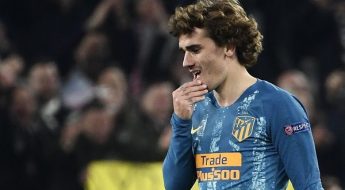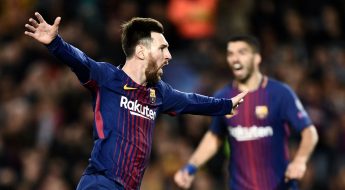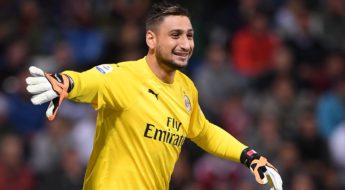Orlando Brown driven to uphold father's legacy with Ravens

OWINGS MILLS, Md. — When it comes to Father’s Day, Orlando Brown Jr. doesn’t do anything special since his dad died seven years ago.
Brown will call his mother as well as his brothers and sisters.
“I just take time and remember,” Brown said.
For Brown, he honors his father’s memory beyond one day. Every time Brown steps onto the Baltimore Ravens practice field, he is following his father’s footsteps.
Brown is playing for the same team, lining up at the same right tackle spot and wearing the same No. 78 as the 11-year veteran affectionately known as “Zeus.”
An important piece of that legacy is still hidden on the football field. The biggest symbol of Brown’s emotional bond with his father is a bandanna that’s tucked under his helmet and can be traced back to one of his saddest days.
On Sept. 23, 2011, his father died in his Baltimore home at the age of 40 from diabetic ketoacidosis, a condition that can lead to kidney failure or cause fluid to build up in the brain. When Brown arrived there, he noticed a Ravens equipment bag on the bed that was filled with football gloves and cleats. It also included a white bandanna, which struck a chord with his son.
“He always told me and preached that, ‘You play offensive line; you have to have your own swag. You have to make yourself noticeable, because nobody notices offensive linemen,'” Brown said. “So it was just something [that] I adapted, and from there, it just holds a lot of value.”
Brown remembers his father always wearing that white bandanna, sometimes tying it around his ankle or wrist. To Brown, that piece of cloth represented a piece of his father.
At every practice and game, Brown would wrap a bandanna around his head before strapping on his helmet. This past season, he went with a black one that sported red roses, his father’s favorite flower.
“That became his signature because that was his dad’s, and his dad was a warrior,” Brown’s mother, Mira, told ESPN last year. “He wears that bandanna because this is what my dad would’ve wanted me to do.”
The Browns are the 40th known pair of father and son to play for the same NFL team and the fourth current one, according to ESPN Stats & Information.
Brown and his father have similar gargantuan size — 6-foot-8 and 340-plus pounds — and a similar playing style, with a nasty edge. But they’re different players with different pedigrees.
Orlando Brown Sr. was a defensive lineman until he switched to offensive tackle for his senior season at South Carolina State. He signed with the Cleveland Browns after going undrafted, and he quickly gained a reputation as the meanest player on the team. Brown started so many fights in practice as a rookie that coach Bill Belichick sometimes had him practice in only a T-shirt and shorts while the rest of the team wore helmets and pads.
“They thought I was crazy,” Brown told Sports Illustrated in 2003. “Every day [during his rookie season] they asked me to see a psychiatrist.”
Orlando Brown Jr. was a three-year starter for national power Oklahoma and was a unanimous first-team All-America selection. He was selected in the third round this year, and he prides himself on his football IQ.
His father preached to him to play more like his former teammate, Hall of Fame offensive tackle Jonathan Ogden, instead of himself. As Brown Jr. put it, his father wasn’t the most technically sound blocker. So, Brown Jr. broke down film of Ogden, Tony Boselli, Anthony Muñoz and Jackie Slater.
“My dad forced me to learn it more so from a Jonathan Ogden standpoint than [from] him,” Brown Jr. said. “Mentally, I don’t think there’s anyone out there that understands the game or is more instinctual than me. That was my credit to being able to play at such a high level in college, and I look forward to transitioning out to this [level].”
Like his father, Orlando Brown Jr. has a chance to start in the NFL immediately. The Ravens declined to pick up the option on Austin Howard, who started all 16 games at right tackle last season.
The battle to fill that void is between Brown and James Hurst, who started at left guard last season. This offseason, Brown worked his way into lining up at right tackle with the first team and he finished there as the mandatory minicamp wrapped up. It’s the same spot on the Ravens at which his father started 80 games during his two stints in Baltimore (1996-98 and 2003-05).
“I think he’s going to be tremendous,” Oklahoma coach Lincoln Riley said of Brown on Adam Schefter’s podcast. “I don’t ever remember going into a game, no matter who we were playing — Auburn, Georgia, Clemson, Ohio State, you name it — and worried about his matchup on that side. He has a love for the game, a hunger and just a true grit about him that you want from all your great offensive linemen. I have a lot of belief in that kid.”
Nightmare path to achieving dream
Brown went from being touted as the best offensive tackle in the draft to the biggest disaster story at the NFL combine.
The numbers that drew the most scrutiny were his 14 repetitions at 225 pounds on the bench press (the fewest of any offensive lineman this year) and his 5.85-second 40-yard dash (the third slowest since 2006).
The social media blitz was merciless, from a derogatory tweet in German to Texas quarterback Sam Ehlinger taking a shot at him. Brown said he had to take a break from Twitter because of “so many 12-year-olds telling me they’re stronger than me.”
“It was surprising for me,” Brown said. “My performance at the combine wasn’t even what I expected to do at all — not even close.”
All of a sudden, it seemed like everyone forgot he was the two-time Big 12 Offensive Lineman of the Year and didn’t allow a sack last season.
“He has one bad day,” said Ravens rookie tight end Mark Andrews, who was Brown’s teammate at Oklahoma. “Obviously, you see his pro day was a lot better, but the guy’s a dog; he’s a beast. [He] should’ve been a first-round pick, no doubt. But he is where he is. Now he has to make the best of what he’s got, and he’s going to thrive.”
After Brown was the seventh offensive tackle drafted, the Ravens made the point that they focus more on the tape than the numbers at the combine. As assistant general manager Eric DeCosta said, offensive linemen don’t have to run 40 yards very often.
“[He’s] just a very, very good player — physical, tough, mean, nasty, didn’t get beat — just a type of guy that we had success with in the past,” DeCosta said.
Special homecoming
Brown wasn’t selected in the first round, but he couldn’t be happier with where he ended up in the draft.
Born the same year as the Ravens franchise (1996), Brown can recount his memories of watching Ray Lewis, Ed Reed and Jamal Lewis practice. He also remembers the times his father knocked over teammates during practice.
Edwin Mulitalo, a former Ravens guard who played on the same line as “Zeus,” had been previously selected to announce Baltimore’s third-round pick. In the green room, he peeked in the envelope.
“I did a double take looking at his name,” Mulitalo said. “Then it clicked.”
During Brown’s pre-draft visit, he handed general manager Ozzie Newsome a note that included a message about how special it would be if he were to play for the Ravens. One team official said Brown would’ve signed right away if that had been a recruiting trip.
“Knowing Zeus, he would be so proud to have this come full circle,” Mulitalo said.
Training together leading up to the draft, Brown told Andrews how amazing it would be if he was selected by Baltimore.
“It’s almost a dream come true for him,” Andrews said. “It’s really special. It’s one of those cool things that you see in sports. You can’t take that for granted.”
Brown’s father pushed him to be the best in some unusual ways. He told his son that he would leave his games if he didn’t start playing harder. He once made his son promise to be a 10-year NFL veteran and a Hall of Famer.
There was also the time Orlando Brown Sr. used Adam Sandler as motivation. Sitting down his son, he put in the movie “The Waterboy” because he wanted him to play like the angry, underdog linebacker Bobby Boucher.
Brown carries all those memories of his father, along with a bandanna, as he begins his NFL career.
“My biggest wish right now is I wish he could see it,” Brown said. “At the end of the day, that’s my motivation for getting to this point and continuing to make sure I carry on his legacy.”





